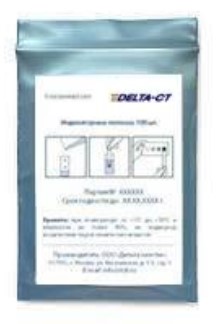North Ossetian poultry farms are trying to increase production under sanctions

Can North Ossetia provide itself with a bird? Under the sanctions, local farmers are increasing their volumes and supplying products to neighboring republics. But there are also difficulties.
Daily broiler chickens for further fattening and meat production are the main specialization of this poultry farm. It also produces hatching eggs. Automatic feed supply, temperature, lighting - everything is taken into account to increase the livestock.
Batraz Tsalkosov, director of the breeding reproducer: “In 2022, we produced about 100 tons of live meat, about 2.5 million hatching eggs and about 600 tons of meat. In total, we have not lost volumes over the year, we are trying to increase production volumes, and we hope to increase in the future”,
The selected breeds of chickens allow to reduce the growing time - if earlier the bird needed more than two months to reach the optimal weight, now the chickens gain three kilograms in 45 days. Poultry meat is supplied to city stores, there is an agreement with local chain supermarkets. But the specialized kiosks of the poultry farm had to be removed due to unprofitability.
Batraz Tsalkosov, director of the pedigree reproducer: “In other republics, we supply daily young stock, broilers - both to Dagestan and Kabardino-Balkaria, here in the republic to small farmers, we are trying to increase volumes. We change breeds, mainly in Russia there are two or three breeds, these are Cobb 500 and Ross 308, last year we used the Cobb 500 cross line, they are more fleshy, but they produce less hatching eggs, and we switched to Ross 308, this breed is larger gives eggs, and also good indicators in terms of weight gain, in terms of safety, in terms of conversion.”
Sanctions against Russia and problems with logistics have also affected the poultry industry. The supply of food additives for fattening chickens has stopped, and other problems have arisen that entrepreneurs have yet to deal with.
Batraz Tsalkosov, director of the pedigree reproducer: “There are certain difficulties in terms of sanctions. Until recently, everything was fine with us, but some types of foreign vaccines were denied entry to Russia, now we have to look for some alternative ways of vaccination, there are good Russian vaccines, but they are a little short of quality. Other new breeds are no longer supplied to Russia, these are all foreign breeding farms, there is a change in Russia, but their volumes do not allow supplying sufficient volumes for breeding farms, they are developing, and I hope that producers will catch up in terms of weight gain, safety, and we We can work with them."
The plans for the future are to increase production volumes and look for new distribution channels. Negotiations are underway with a major Russian chain retailer.




























































